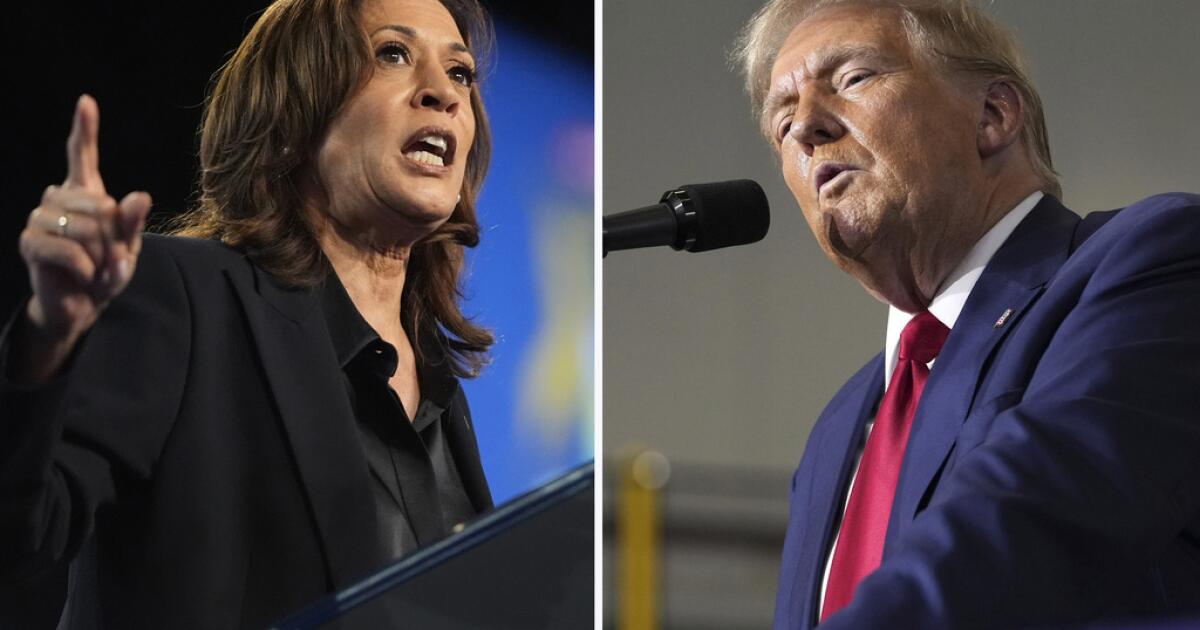Analysis: American debt will increase with Harris' economic proposals, but it will increase with Trump's proposals

WASHINGTON (AP) — An analysis released Monday suggests the U.S. national debt will rise under the economic proposals of both Vice President Kamala Harris and Republican nominee Donald Trump, but more so under Trump's proposals.
Under Harris' proposals, the debt would increase over 10 years by $3.5 trillion, according to an analysis by the nonpartisan group Committee for a Responsible Federal Budget. This comes despite Harris' campaign promise that the Democratic nominee is “committed to fiscal responsibility: investments that will stimulate our economy, pay for themselves and reduce the deficit at the same time.”
The same analysis says that under former President Trump's proposals, the debt would rise by $7.5 trillion and possibly reach $15.2 trillion. This comes despite Trump's insistence that economic growth under his presidency will be so great that no one will have to worry about the deficit.
The 34-page report focuses attention on the issue of government borrowing, which the winner of the November election will have to confront. The total federal debt currently stands at $28 trillion, and it could rise because revenues cannot match expenditures from public programs such as Social Security and Medicare. The cost of servicing the debt “exceeded the cost of defending the nation or providing medical care to elderly citizens,” the analysis notes.
Based on the candidates' speeches, campaign documents and social media posts, the analysis warns that “debt will continue to grow faster than the economy under either candidate's proposals and in most cases will grow faster and faster than under current conditions.” law.”
In their speeches to voters, neither candidate emphasized much of the need to reduce the deficit, but multiple analyzes clearly show that Harris is more fiscally responsible than Trump.
Jason Furman, a Harvard professor who was chief White House economist during Barack Obama's administration, estimated in a Wall Street Journal op-ed that Harris' plans could reduce the deficit by $1.5 trillion or could increase it by 2020. $1.5 trillion. Meanwhile, their estimates show that Trump's plans would increase the deficit by $5 trillion, although that number does not include his plans to waive taxes on overtime wages and eliminate caps on deductions for state and local taxes.
There are other analyses, such as those by the Yale Budget Laboratory and Penn Wharton's Budget Model, that also show that Harris would be better at controlling the deficit.
An analysis by the Committee for a Responsible Federal Budget estimates that Harris' plans will add $3.5 trillion to the national debt between now and the end of 2035. This estimate is based on how much various government programs cost.
Harris is expected to implement $4.6 trillion in tax cuts, including extending some of Trump's 2017 cuts, exemptions for parents, and eliminating tip taxes for hospitality workers. $4 trillion in tax increases on corporations and the wealthy will not be enough to offset the cost of their plans and the additional interest on debt they would generate.

“Award-winning zombie scholar. Music practitioner. Food expert. Troublemaker.”









